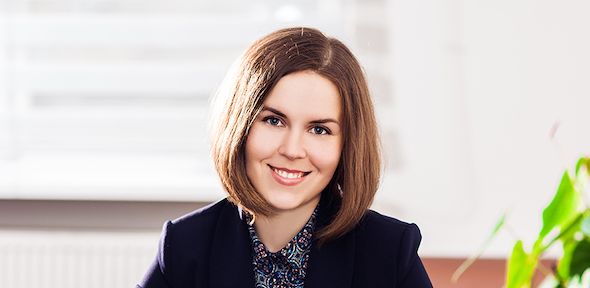
College: Fitzwilliam
Email: kyp22@cam.ac.uk
Supervisor: Dr Dora Alexopoulou
Research Topic: Acquisition of articles in English as a second language
About
Kate is originally from Kyiv, Ukraine, where she used to work as an English Teacher for many years. She obtained her MSc in Applied Linguistics and Second Language Acquisition at the University of Oxford in 2014. Her interest in Applied Linguistics stems from her teaching background. Kate got a Certificate in English Language Teaching to Adults (CELTA) at the British Study Centres in Oxford in 2014. She has taught English in a variety of settings in Ukraine, the UK, and Belgium.
Aside from teaching and research, Kate is a musician. She sings, plays the piano and writes songs. In 2019 she crowdfunded the recording of her first solo album under the stage name Kate Lucid. She also sings in the Cambridge University Symphony Chorus.
Research
Kate’s research is broadly in the field of Second Language Acquisition (SLA), particularly in adults. It is striking that acquiring one’s first language (L1) is an effortless task successfully accomplished by neurotypical children all over the world, but learning a second language (L2) to the same level of proficiency is an arduous job for most people, especially if they start learning in adulthood. What makes L2 learning so different from L1 acquisition? Why do some language features create persistent issues and give away learners’ non-native status even after years of exposure and study? Can we facilitate learning based on what we know from research?
In SLA much attention is given to L1 effects, e.g. the absence of a linguistic feature in a learner’s L1 (e.g. lack of articles “a” and “the” in Russian) is expected to cause difficulties with the acquisition of this feature in an L2. Moreover, there are difficulties inherent in the L2, which pose a challenge to any learner, e.g. the fact that in English “the” is used with all types of nouns, but the use of “a” is additionally restricted by a grammatical feature, namely number (“a” is used with singular but not with plural nouns) and the count/mass distinction (“a” is used with countable but not with mass nouns, such as “milk”).
In her PhD, Kate uses a large corpus of English learner writing to investigate how multiple factors work together and interact in predicting learners’ use of English articles. She draws on input processing theory and the results of her corpus-based analysis to create and implement a teaching intervention targeted at articles for intermediate English learners.
Scholarships/Prizes
Cambridge Trust Scholarship, Fitzwilliam Senior Scholarship
Teaching
Kate supervises undergraduate students in Li15 (First and Second Language Acquisition) and has also supervised Li3 (Language, Brain, and Society)
Conference papers
Öksüz, D. C., Derkach K., Alexopoulou T. (2021). L1 and L2 Typological Distance Effects on the Learnability of Articles in L2 English: A Large-Scale Learner Corpus Analysis [Conference presentation abstract]. Architectures and Mechanisms for Language Processing, Université de Paris, France. https://amlap2021.github.io/program/106.pdf
This collaboration is part of a larger research project funded by the LeverhulmeTrust (https://ef-lab.mmll.cam.ac.uk/leverhulme.html)
November 2019 – Cambridge Language Sciences Annual Symposium
Poster: “Referentiality and article errors in L2 English: evidence from Brazilian and Russian learners”
July 2019 – International Corpus Linguistics Conference in Cardiff, UK
Poster: “Article use patterns in L1-Brazilian and L1-Russian learners” https://www.researchgate.net/publication/344495130_Article_use_patterns_in_L2_Enlish
September 2018 – EuroSLA Conference, presentation at the doctoral workshop
“Article use patterns in L1-Brazilian and L1-Russian learners across discourse-pragmatic contexts”
Publications
Derkach, K., Alexopoulou, T. (in preparation) English article use in adult L2 English learners: which factors really matter
Other activities and roles
Talks
March 2021 – Fitzwilliam College Postgraduate Talks: “Can we rely on native speaker judgments?” (presented to non-specialist audience)
March 2019 – “Articles in L2 English: using Processing Instruction to facilitate acquisition”, talk for partner-educators at Education First in London
May 2018 – SLA and Multilingualism Workshop organised by Cambridge Processing and Acquisition of Language Lab
Talk: “Article use patterns in L1-Brazilian and L1-Russian learners across discourse-pragmatic contexts”
Personal website


